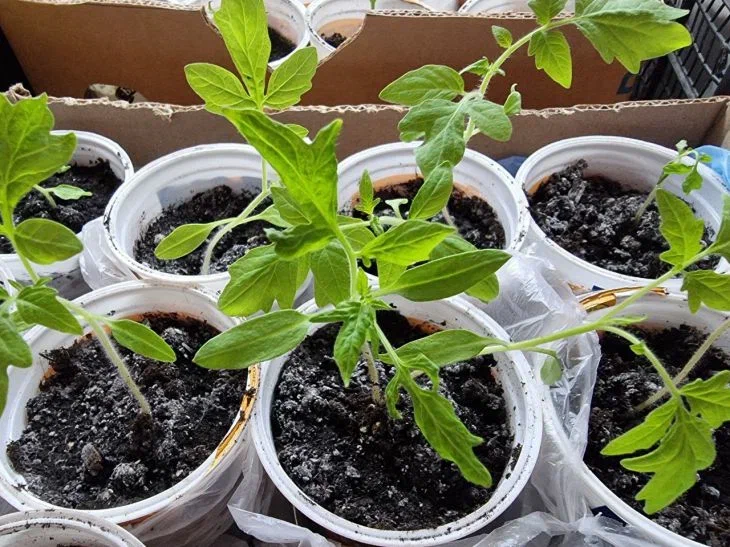To prevent tomato seedlings from stretching out and their stems from becoming thinner, bending towards the sunlight and turning yellow, it is necessary to follow certain agricultural practices.
An expert of the online publication BelNovosti, agronomist, and landscape designer Anastasia Kovrizhnykh told us how experienced gardeners achieve strong tomato seedlings with thick stems.
Insulate the soil
If seedlings are forced to grow in cold soil, the seedlings will not receive the nutrition they need, which will ultimately negatively affect the tomato yield.
Therefore, the gardener's task is to measure the soil temperature and then insulate the window sill, for which foam plastic in combination with insulation that has a "mirror" silver coating can be useful.
In a pinch, special heated mats for seedlings will do.

Water with the right water
Don't ignore the time-tested recommendation that sounds like this: water for irrigation should definitely be settled. This method (like boiling and freezing, by the way) will help reduce the hardness of the liquid.
In addition, monitor the acidity of the water for irrigation - for tomatoes, a pH of about 6 and not higher than 6.5 is suitable. Special preparations have long existed for acidification, for example, "Fitokislinka" and others.
Have a "cold period"
After about 70% of the loops have appeared and they have begun to straighten, the film can be removed from the boxes and glasses. It is not recommended to do this earlier.
Then it is necessary to reduce the air temperature. The so-called "cold period" lasts 3-4 days, but can be reduced to 1-2 days, and for seedlings that have managed to stretch, it can last up to 4-5 days.
The temperature should be reduced by an average of 5 degrees compared to the optimum. For example, if the temperature was 25 degrees before, it should be reduced to 18-20 (but not below 16) degrees.
Earlier, the expert explained what should not be added to the soil for seedlings so as not to spoil it.









